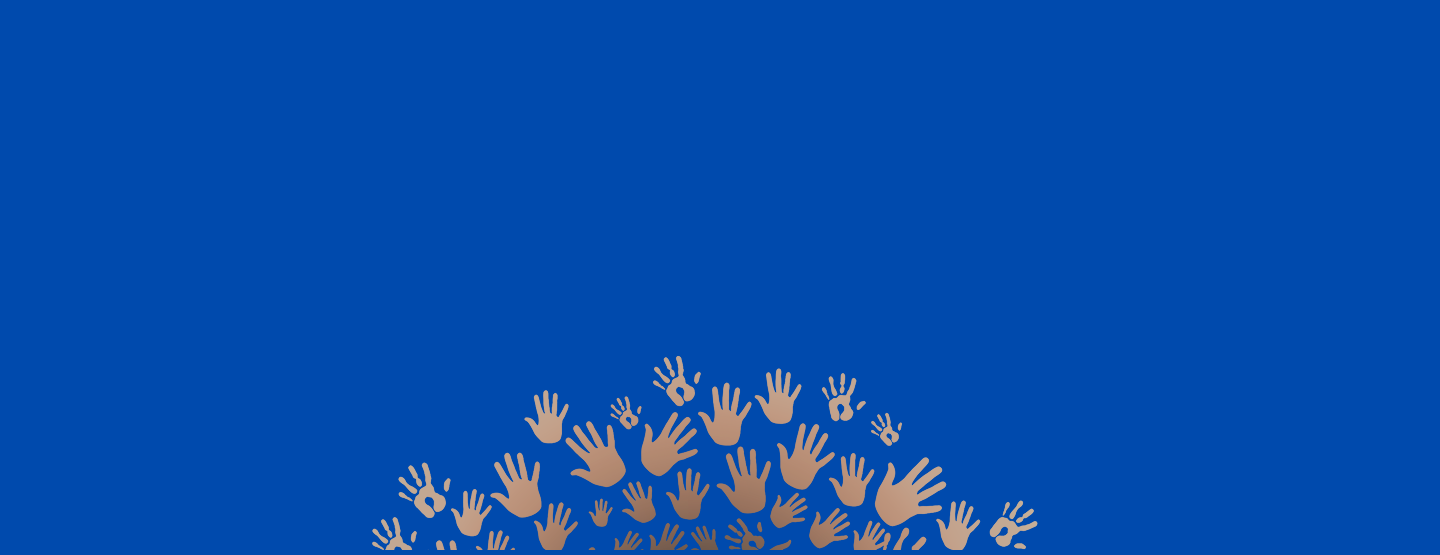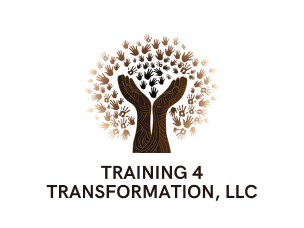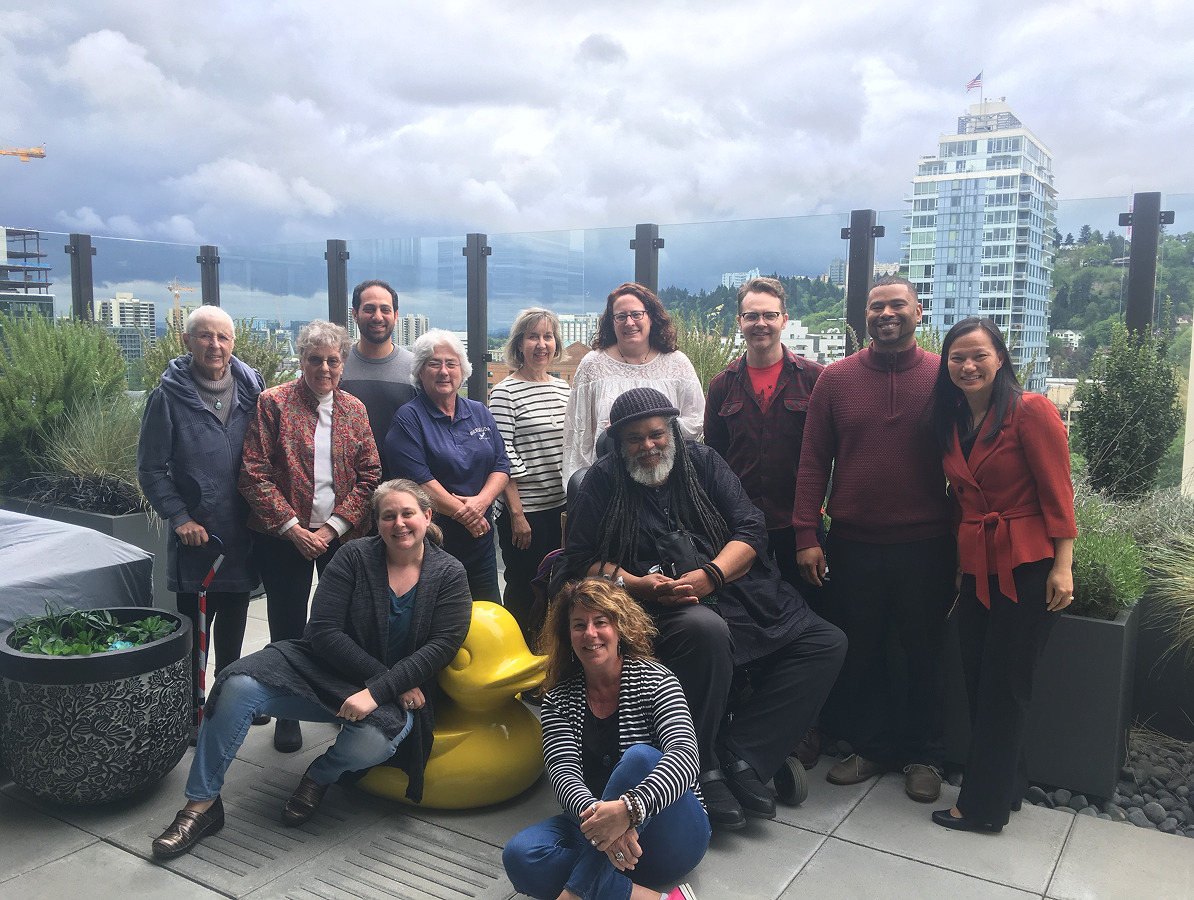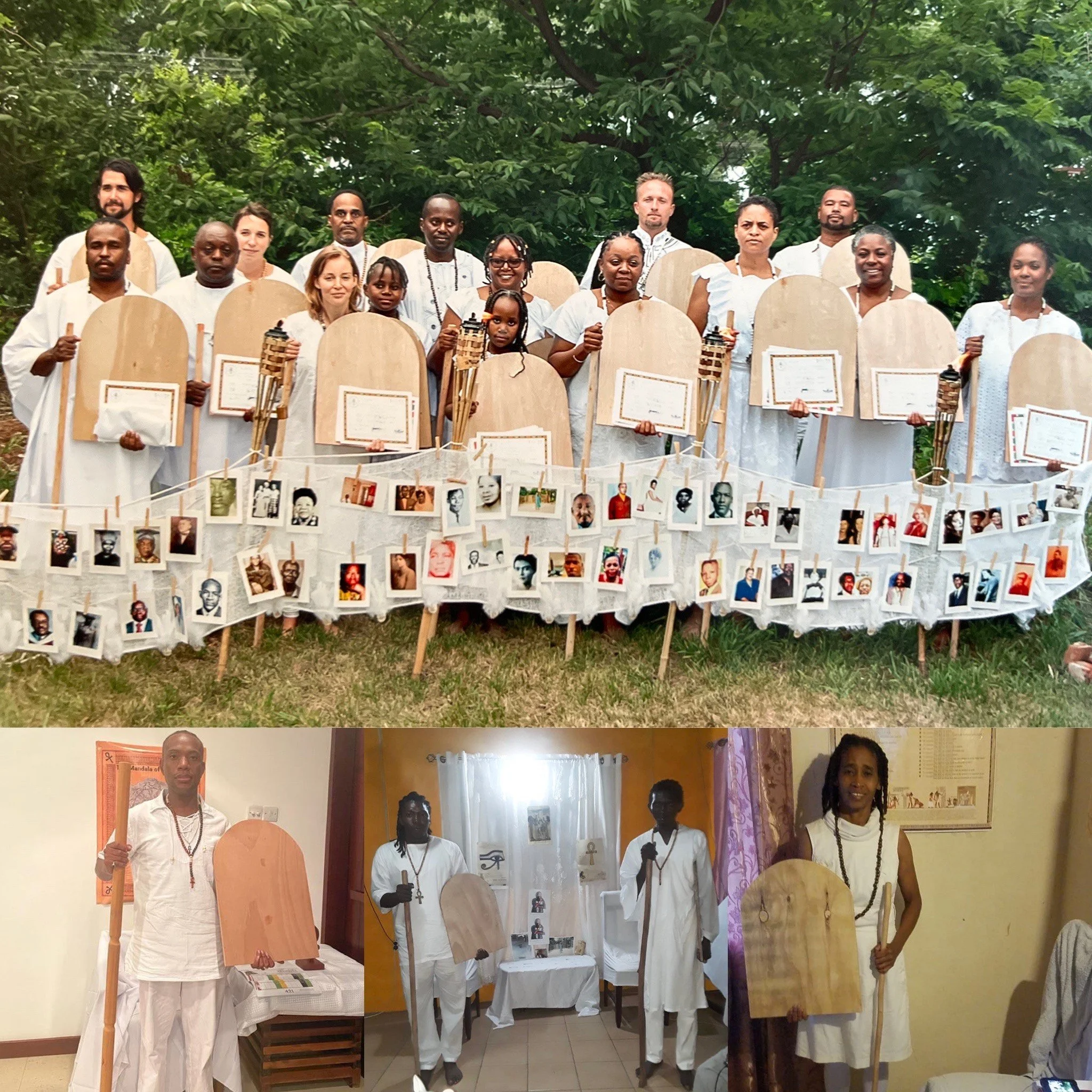
Who We Are
Training 4 Transformation, LLC (T4T) is certified as a minority business enterprise by the National Minority Supplier Development Council (#SC52277). T4T works with organizations to optimize performance, reduce the risk of potential liabilities, and rebuild trust amongst colleagues or the community.

Our Mission
Training 4 Transformation (T4T) is committed to helping individuals, teams, and organizations connect more deeply to interrupt harm and increase efficiency. We create spaces and processes that support learning, growth, empathy, and critical understanding.

Our Values
Re-indigenization
We believe that re-indigenization is the path toward building sustainable and healthy generations. Re-indigenization is the process of reclaiming, revitalizing, and valuing indigenous knowledge, systems, cultures, and traditions.
Lessons learned from elders passed down through oral tradition, strict initiations, and cultural rites of passage are essential to the viability of any organization, institution, or company.
Interdependence
T4T believes that humans must take responsibility for their collective well-being in order to thrive. In Buddhism, interdependence means that all things are interconnected and depend on other factors to exist. Thich Nhat Hanh explains it as “Everything relies on everything else in the cosmos in order to manifest—whether a star, a cloud, a flower, a tree, or you and me.”
Transformative Justice
Transformative justice is a social framework that addresses the underlying causes of trauma to provide healing and reparations to people who are most impacted and live closest to the pain. T4T believes that healing requires addressing the root causes of violence.
T4T Co-Founders
2014 - 2022
After more than a decade of service, Shenmiakhu (Shen-mee-Yahoo) retired from organizational training and consulting.
He now dedicates his work to teaching and mentoring in higher education as a college professor, continuing his family’s commitment to developing the next generation of student leaders.
Training 4 Transformation continues its mission under new leadership, supported by a diverse cadre of facilitators and coaches to meet the evolving needs of clients!
Training 4 Transformation, LLC can help you achieve real, compliant, and measurable outcomes which integrate and embrace your community’s needs.

T4T in the Press
T4T is best known for its unprecedented work in Police-Community Integrated Training and Education (P-CITE). P-CITE is a national initiative aimed at enhancing how law enforcement responds to dynamic situations, especially with individuals demonstrating behavioral health conditions and intellectual or developmental disabilities. It focuses on increasing awareness, offering specialized training, and promoting evidence-informed practices in policing. Access all media here.
An expert in transforming traumatic circumstances into healing opportunities, Shenmiakhu developed Community Conscious Policing, a public-health response model to end unnecessary police violence. Explore the following content, many of which features T4T’s impact, Shenmiakhu’s pespective, and his book on the subject.
May 2025
Building a Career at the Intersection of Justice and Healing
T4T’s co-founder speaks with the The Social Change Career Podcast to discuss her inspiring journey building a career that bridges justice and healing. With over 20 years of experience—including roles at SEIU, ACLU, and Training 4 Transformation—she offers practical insights on advancing social change, fostering equity, and leading with resilience. Listen now on PCDN Social Change Career Podcast.
May 2022
Gin & Justice w/Brandon Lee: Training for Transformation
Shenmiakhu Pernebsati (formerly known as Brandon Lee) speaks with Justine and Amanda on the Gin & Justice podcast. He discusses Training for Transformation and his book Community Conscious Policing. Brandon shares ideas on reforming policing in communities, his own experience growing up in Oakland and his encounter with police brutality. Gin & Justice Podcast
February 2022
Builders By Nature
Shenmiakhu Pernebsati is interviewed by Jonathan Dumas on his podcast Real Talk with Dumas. Shenmiakhu talks about his knowledge and first-hand experience on community-based solutions for unnecessary police violence. Brandon also discusses his case studies in his book Community Conscious Policing: A Guide for People’s Justice and Law Enforcement Solutions. He outlines the 33 recommendations to help find accountability. Episode 35 | Jonathan Dumas
September 2019
Diversity Trainings Usually Fail — Here’s What You Can Do To Create Lasting Changes
Shenmiakhu Pernebsati is interviewed about the evolution of diversity and inclusion training at companies. A CBS News Investigation revealed that many police departments are struggling to overcome racial bias. Shenmiakhu talks about the challenges and shortcomings, highlighting that many are outdated or fail to lead to long-term change. He discusses ways to foster a culture of healing and understanding in ways that lead to meaningful impact. Forbes








